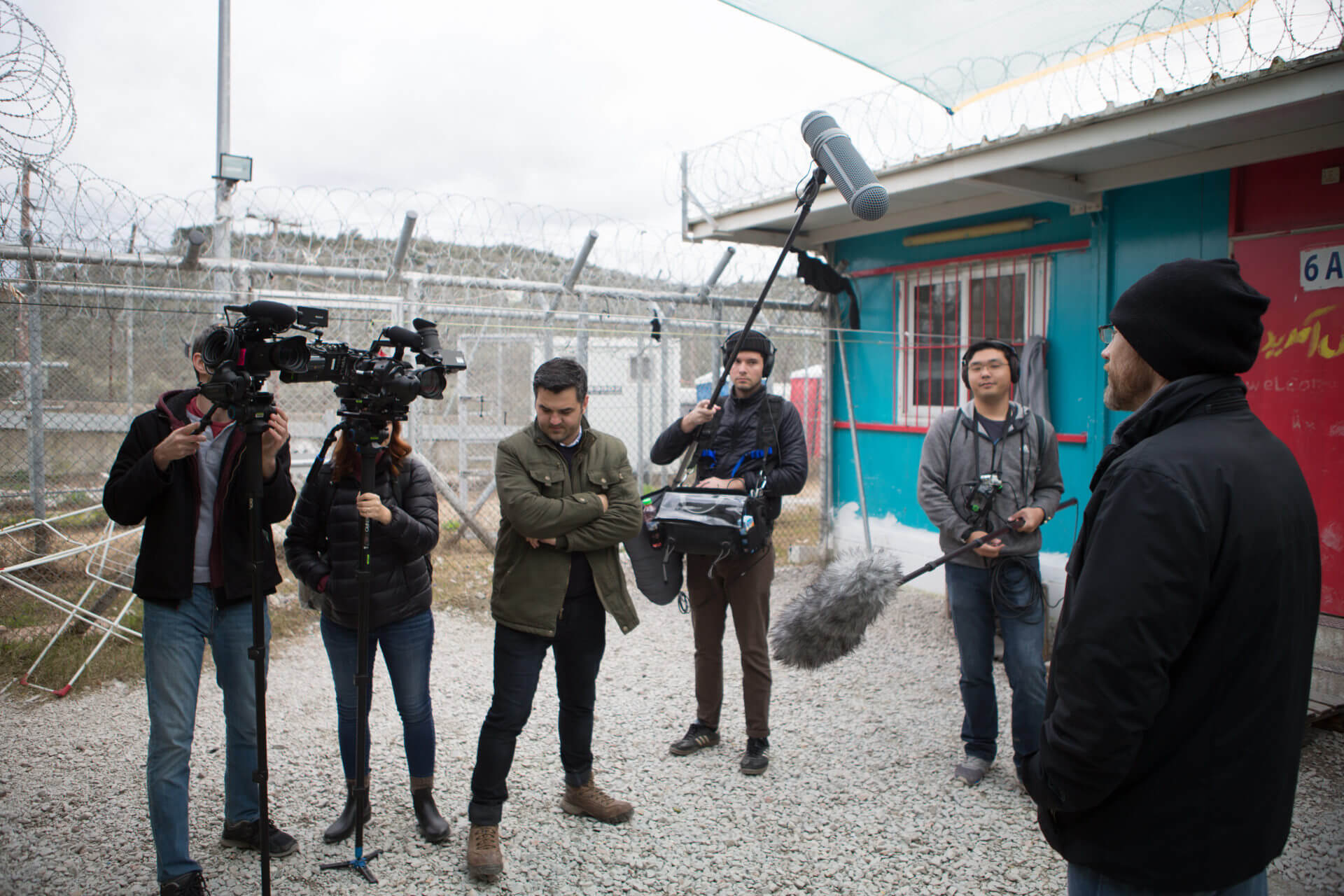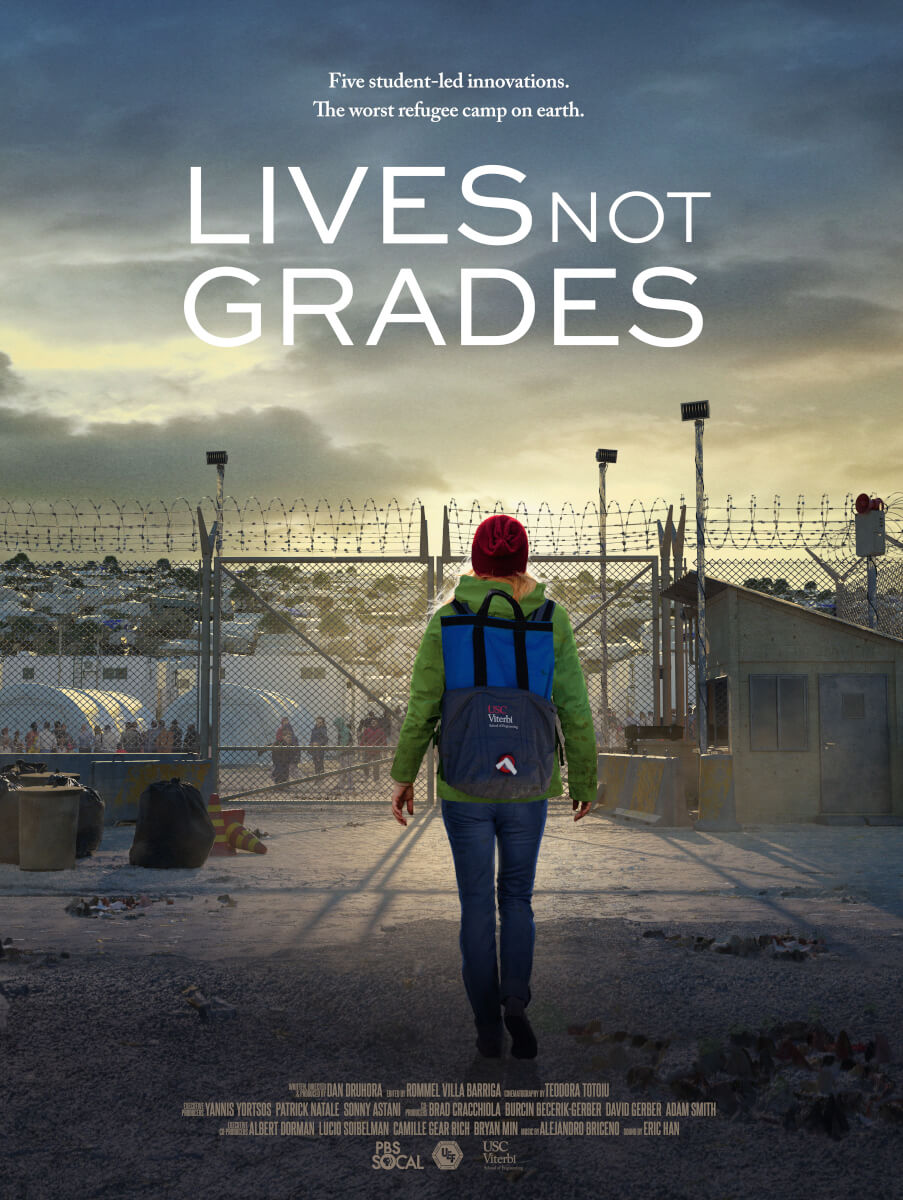USC Viterbi-Produced Documentary Headed to PBS

A USC Viterbi-produced feature documentary that spotlights Europe’s refugee crisis, the largest humanitarian crisis since War World II, will soon air on PBS. “Lives, Not Grades,” follows five teams of students brought together from seven different USC schools between 2018 and 2020 to research, design and build digital or physical solutions that can improve the lives of the tens of thousands of refugees living in Europe’s largest refugee camp, Moria, on the Greek Island of Lesvos. The course was created and co-taught by Burcin Becerik-Gerber, dean’s professor of civil and environmental engineering, David Gerber, associate professor of practice in civil and environmental engineering and architecture, Brad Cracchiola, mechanical engineer specializing in product development, and Daniel Druhora, a filmmaker and humanitarian response coordinator.
 “Lives, Not Grades” which chronicles the journey of the course, will have its world television premiere on PBS SoCal on May 5th, 2021 at 7:00 PM followed by a national rollout on PBS member stations including LinkTV on Wednesday, May 5th, 2021 at 8:00 PM. It was executive produced by Yannis Yortsos, Sonny Astani and Patrick Natale.
“Lives, Not Grades” which chronicles the journey of the course, will have its world television premiere on PBS SoCal on May 5th, 2021 at 7:00 PM followed by a national rollout on PBS member stations including LinkTV on Wednesday, May 5th, 2021 at 8:00 PM. It was executive produced by Yannis Yortsos, Sonny Astani and Patrick Natale.
“When we set out to make this film, we didn’t seek to argue for or against policies,” said director and producer Daniel Druhora, “We wanted to highlight an ongoing humanitarian crisis that has largely disappeared from the headlines, and the role engineering students can have in restoring hope as the natural problem-solvers of our time.”
The film also delves into the importance of learning from failure. “Something we fight to avoid not just as engineers but as human beings,” Druhora said. “To engineer is human and the process of innovation always encounters failure. The question is what we do with it, particularly in the context of the global refugee crisis, one of the greatest failures of our modern society.”
“Lives, Not Grades,” was made possible with a grant from the United Engineering Foundation and took two years to complete. It was filmed in Los Angeles, Lesvos and Berlin, and marks the first feature-length documentary film produced by USC Viterbi.



